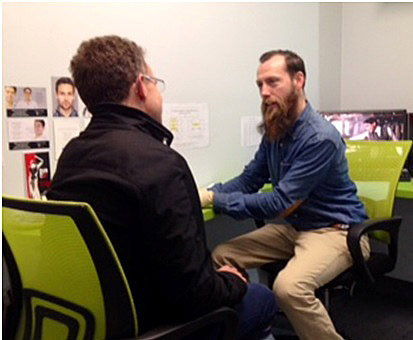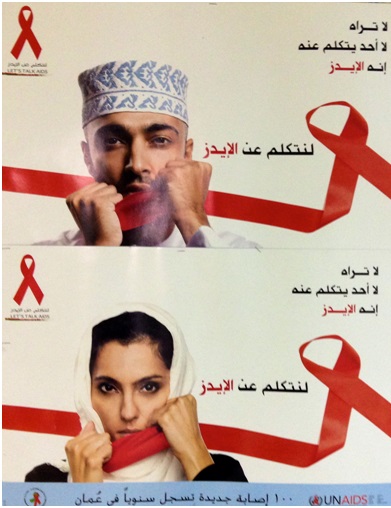From the President: Family medicine and the fight against HIV/AIDS
 Photo: AIDS 2014 sign for the World AIDS Conference in Melbourne,
with flowers left by members of the public for those lost to AIDS and
those who were on flight MH17
español
Photo: AIDS 2014 sign for the World AIDS Conference in Melbourne,
with flowers left by members of the public for those lost to AIDS and
those who were on flight MH17
español
WONCA members around the world have expressed their shock and sadness at the terrible loss of so many lives on Malaysian Airlines flight 17. Another tragic day in world history. On your behalf I have expressed our condolences to our friends and colleagues in affected nations, especially the Netherlands and Malaysia.
I was at the World AIDS Conference in Melbourne in the days following this tragedy. As you may have read in the media, several leading Dutch researchers and clinicians and community advocates were on board flight MH17. It was very sad to be in sessions where one of the speakers was not present and to know that he or she would never arrive.
The World AIDS Conference continued under the shadow of this event. The organisers recognized that the meeting needed to continue because the tragedy of the global HIV/AIDS epidemic continues. While there have been great improvements in recent years in the diagnosis and treatment and care of people with HIV in many parts of the world, millions continue to die due to lack of access to treatment and care, and millions remain undiagnosed.
My work as a family doctor has had a strong focus on the care of people with HIV over the past 25 years. Attending the World AIDS Conference led me to reflect on this experience and some of the key lessons I have learned.

1.
HIV is a primary care condition. Most treatment and care for people with HIV can be provided by family doctors and their teams in the community. HIV treatment and care needs to be integrated into primary care, not run through stand alone clinics.
Photo: Consultation at the Pronto drop-in HIV testing centre in Melbourne
2.
Family doctors can play a key role in HIV prevention. Every encounter with a patient is an opportunity for a discussion about prevention and health promotion. And this includes the prevention of HIV and other blood borne viruses and sexually transmissible infections.
3.
If researchers want to find out what’s going on in at risk communities, they should ask the family doctors working in those communities. I am often annoyed by research reports that are out of touch with the reality of what is happening in communities. As family doctors we have a special insight into the health issues affecting the members of our own communities and can assist researchers to ask the questions that need to be asked in order to make a difference.
4.
Informed consent is important for all investigations. Just as informed consent is required for an HIV antibody test, I now always discuss with my patients the investigations I would like to recommend and ensure I have their consent to order each of them.
5.
We must not let professional boundaries get in the way of delivering the best care for our community. As family doctors we often do our best work as a member of a team of primary health care workers. While I support task sharing between the members of a primary care team, I find it difficult to support the trend towards task shifting when it leaves primary care nurses and community health workers unsupported.
6.
Continuity of care is the single most important factor influencing adherence to therapies. As family doctors we are experts in supporting our patients with chronic diseases who need to take medication each day for conditions like diabetes, hypertension and asthma. The same lessons apply to supporting our patients with HIV on antiretroviral medications. The lessons on the management of co-morbidities also apply to the care of people with HIV.

7
. People with HIV have led other advances in the health consumer movement through promoting therapeutic partnerships with their doctors. Over the past 25 years I have seen consumer activists challenge the stigma and discrimination that often accompanies a diagnosis of HIV, or identification as a member of an at-risk community. And I have seen many brave family doctors stand up beside their patients to call for reforms to unfair laws and policies in their countries. The evidence is clear. Access to effective health care saves lives. And access to compassionate laws saves lives too.
Photo: Public health campaign running through primary care clinics in Oman promoting discussion about HIV/AIDS
8.
If you listen and learn from your patients, you will become a better doctor. I have learned a lot about the management of HIV over the years. During this time, far more useful lessons have come from my patients sharing their experiences and insights, than have come from textbooks and lectures.
In Australia I now chair the government’s national advisory committee on HIV/AIDS and related diseases. We have recently released Australia’s seventh national strategy, which sets out the nation’s strategic response to tackling HIV over the coming four years. It includes a strong focus on the role of family doctors and the members of our teams in HIV treatment and care. You can access a copy
online.
Michael Kidd
President
World Organization of Family Doctors (WONCA)